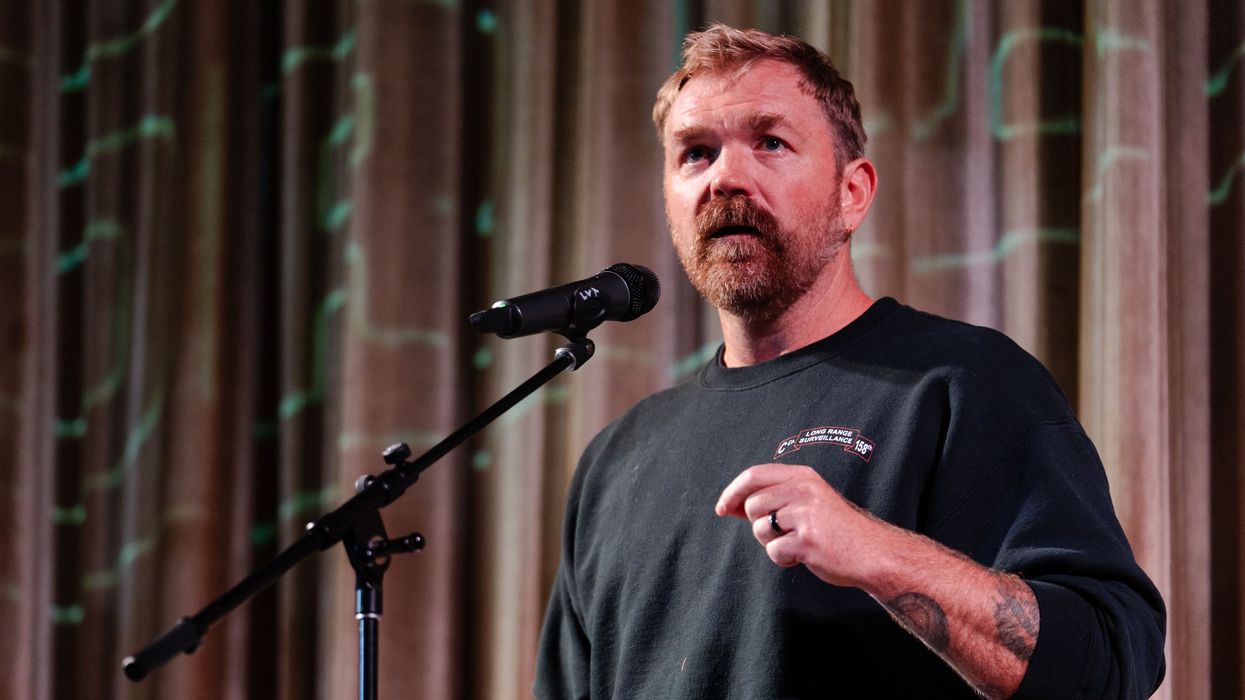August, 20 2010, 01:09pm EDT

New Debt for Disaster for Pakistan?
Jubilee USA Network Calls for Immediate Debt Service Moratorium in Response to Disaster, Assistance in Grant Form
WASHINGTON
Jubilee USA Network, an alliance of more than 75 religious
denominations, human rights groups, and development agencies, raised
concern over the World Bank and Asian Development Bank's recent
announcements to provide Pakistan with a $900 million and $2 billion
loan respectively. Pakistan already pays $3 billion a year in debt
service, carrying a foreign debt totaling $54 billion, and now risks a
new debt crisis in the face of the worst natural disaster in its
history.
"Pakistan must be able to mobilize all available resources toward
recovery," stated Eric LeCompte, Executive Director of Jubilee USA
Network. "Instead of sending billions in debt service out of the
country, Pakistan should be able to invest those resources in relief and
recovery for its people. Furthermore, the international community
should provide grant support instead of new loans that will push the
country further into debt," he added.
Despite initial estimates pricing Pakistan's recovery at $20 billion
over the next five years, only a fraction of needed assistance has been
forthcoming from the international community. Jubilee USA applauds the
Obama administration for promising $150 million in flood aid thus far,
yet also calls on the administration to take leadership in ensuring that
needed assistance does not add to the country's already staggering debt
burden, hindering future development.
As part of a comprehensive relief and recovery plan, the Administration should:
1.
Call on all bilateral and multilateral creditors to immediately
institute at least a two year moratorium with no accrued interest on all
debt service payments from Pakistan. While this will free up $3
billion each year to direct toward the country's initial recovery, the
moratorium should only be a first step toward auditing Pakistan's debt
portfolio and negotiating definitive cancellation of Pakistan's debt
stock, as is called for by Pakastani civil society.
The US should use its substantial voting power and influence on the
Boards of both the IMF, World Bank, and Asian Development Bank to secure
a moratorium from these creditors, secure immediate agreements by all
bilateral creditors to halt debt service payments, as well as negotiate
definitive debt cancellation. All of Pakistan's resources should be
directed at recovery, not repayment.
The international community has responded with debt service
moratoria and debt cancellation in the wake of massive human
catastrophes in the past: to Hurricane Mitch in Central America in 1998,
the countries devastated by the 2004 tsunami, and to Haiti's
catastrophic earthquake in January 2010.
2. Ensure that emergency disaster-related assistance, wherever
possible, be in the form of grants instead of loans. Time and again,
countries facing tragedies like Pakistan's catastrophic flooding are
forced to mortgage their future as they borrow for relief and recovery
efforts. Thus, the tragedy is magnified for years to come.
3. Lead efforts to establish up-front funding for climate
change-related disaster preparation. With early warning systems, risk
analysis, and preparation, Pakistan could have dramatically reduced the
damage caused. The United States and other historically high greenhouse
gas emitting countries must take responsibility for their climate debt
to those who are least responsible for, and most vulnerable to, climate
change.
Jubilee USA Network is an interfaith, non-profit alliance of religious, development and advocacy organizations. We are 75 U.S. institutions and more than 750 faith groups working across the United States and around the globe. We address the structural causes of poverty and inequality in our communities and countries around the world.
(202) 783-3566LATEST NEWS
FTC Opens Investigation Into Instacart Pricing After 'Bombshell Report'
Groundwork Collaborative revealed this month that artificial intelligence-enabled pricing experiments used by the shopping app have charged users up to 23% more than others for the same products.
Dec 18, 2025
The executive director of Groundwork Collaborative, the advocacy group behind a "bombshell report" that exposed Instacart's artificial intelligence-powered pricing schemes, welcomed the news that the federal government US opening an investigation into the business practice, and urged the Federal Trade Commission to follow the probe with concrete consumer protection actions.
The FTC told Gizmodo that "like so many Americans, we are disturbed by what we have read in the press about Instacart’s alleged pricing practices.”
Groundwork joined Consumer Reports and More Perfect Union in examining Instacart's practice, using the AI pricing software Eversight, of quoting different prices to different shoppers using the company's app, which allows people to order groceries and send a shopper to pick them up.
Some customers at a Safeway in Seattle were charged a price that was 23% higher than other shoppers for Skippy peanut butter, Oscar Mayer turkey, and Wheat Thins crackers. In Washington, DC, customers using the Insacart app saw eggs priced at $3.99, while others who logged on at the exact same time were charged $4.79 for the same brand at the same store.
Instacart has the ability to change prices based on data such as ZIP code or income, though the groups did not find it is currently using that information in its pricing experiments.
Groundwork noted that the scheme is taking place as American families are already struggling to afford groceries, electricity, healthcare, and other essentials.
“At a time when families are being squeezed by the highest grocery costs in a generation, Instacart chose to run AI experiments that are quietly driving prices higher," said Lindsay Owens, executive director of Groundwork. "While the FTC’s investigation is welcome news, it must be followed with meaningful action that ends these exploitative pricing schemes and protects consumers. Instacart must face consequences for their algorithmic price gouging, not just a slap on the wrist.”
In its report, the group called on the FTC to take action under Section 5 of the Federal Trade Commission Act, which prohibits “unfair methods of competition," or to bring enforcement cases or initiate rulemaking to officially classify AI-enabled pricing strategies as "unfair and deceptive" strategies.
The progressive think tank Roosevelt Institute applauded Groundwork and its partners for the "major investigation" that pushed the FTC to act.
Instacart's shares dropped by about 7% following the news of the FTC probe.
On Thursday, the agency announced that Instacart would pay $60 million in refunds to settle separate allegations that it falsely advertised "free delivery" while charging a service fee, falsely advertised a "100% satisfaction guarantee" that suggested it would offer full refunds, and failed to disclose terms regarding Instacart+ membership.
Keep ReadingShow Less
'No War With Venezuela,' Says Maine US Senate Candidate Graham Platner
"It should not be an option in our government to allow a failing presidency to just start a war because they feel like it's politically expedient," said the progressive running to unseat Republican Sen. Susan Collins.
Dec 18, 2025
The progressive running to unseat Republican US Sen. Susan Collins of Maine is speaking out forcefully against President Donald Trump's march to war with Venezuela, warning of alarming parallels with the invasion of Iraq over two decades ago.
In a video posted to social media on Wednesday night, Graham Platner—a Marine Corps and US Army veteran who served multiple combat tours in Iraq and Afghanistan—said it is "terrifying" to witness the US government "yet again trying to lead us into an illegal war that is going to do absolutely nothing for the average American."
"What is happening in Venezuela should not fool you into thinking that we are under attack, that we are under threat from Venezuela," said Platner, who accused the increasingly unpopular Trump administration of falling back on the "most tried and true method of failing governments, which is to go start a war."
"This is why we need to claw back war powers from the executive branch," he added. "It should not be an option in our government to allow a failing presidency to just start a war because they feel like it's politically expedient. That shouldn't even be possible, and the only reason it is possible is that we have allowed it to become possible."
Watch:
Platner's remarks came a day after Trump, who has repeatedly threatened to launch military strikes inside Venezuela, announced a "total and complete" blockade on "sanctioned oil tankers" approaching and leaving the South American nation—a move that was widely condemned as an act of war.
"No war with Venezuela," Platner wrote on social media in response to the president's announcement, expressing a view shared by 63% of US voters, according to one new poll.
Platner's vocal condemnation of Trump's military aggression toward Venezuela and warnings about regime change contrast sharply with his electoral opponents' relative silence on the issue, which has drawn international alarm and outrage.
Maine Gov. Janet Mills, Platner's establishment-backed competition in the Senate primary, told Common Dreams in a statement that "Congress should be exercising its oversight and war powers authority" to constrain Trump. The comments appeared to be Mills' first public statement on the potential military conflict with Venezuela.
"Unsurprisingly, the president's objectives and strategy are unclear as he drives us closer to a costly and unnecessary war," Mills said, adding that, "unlike Susan Collins," she would have supported a recent war powers resolution that nearly every Republican senator voted to block last month.
Collins, according to the Associated Press, gave opponents of the war powers resolution "the decisive 50th vote to defeat it" when it came up for a vote on November 6.
If passed, the measure would have required Trump to "direct the removal of United States Armed Forces from hostilities within or against Venezuela that have not been authorized by Congress."
"The power to wage war constitutionally was given to the legislative branch to make sure that this exact kind of scenario did not happen."
Senate opponents of Trump's military aggression toward Venezuela directly and his ongoing, deadly strikes on boats in international waters are not giving up on efforts to rein in the lawless president.
Sen. Ruben Gallego (D-Ariz.), an Iraq War veteran who has warned Trump is on the verge of launching "Iraq War 2.0," introduced a resolution on Wednesday aimed at halting the president's campaign of extrajudicial executions in the Caribbean and eastern Pacific.
"The decision to use military force is one that requires serious debate, and the power to declare war unambiguously belongs to Congress under the Constitution,” said Gallego. “As an Iraq War veteran, I know the costs of rushing into an unnecessary war and that the American people will not stand for it.”
Platner echoed that sentiment in his video message on Wednesday.
"The power to wage war constitutionally was given to the legislative branch to make sure that this exact kind of scenario did not happen," said the US Senate candidate. "The only way that we can keep it from happening again is to make sure that the power to wage war returns to the representatives of the people."
Keep ReadingShow Less
China Rips US ‘Warmongers’ as Trump Admin Proposes $11 Billion Taiwan Arms Sale
China's foreign minister warned that US weapons sales to Taipei "will only accelerate the push towards a perilous state of military confrontation across the Taiwan Strait."
Dec 18, 2025
The Chinese government on Thursday condemned the Trump administration's announcement of a proposed $11 billion weapons package for Taiwan, a move that Beijing said violates both the "One China" principle and an agreement in which the US pledged to reduce arms sales to Taipei.
The US State Department said the record $11.154 billion package contains a broad range of weaponry and other military equipment, including Lockheed Martin High Mobility Artillery Rocket Systems (HIMARS), Lockheed Martin Army Tactical Missile System (ATACMS) long-range missiles, BAE Systems M109A7 self-propelled howitzers, drones and tactical software, Javelin and TOW missiles, and M2A1 machine guns and other armaments.
"This proposed sale serves US national, economic, and security interests by supporting the recipient’s continuing efforts to modernize its armed forces and to maintain a credible defensive capability," the State Department said in a statement. "The proposed sale will help improve the security of the recipient and assist in maintaining political stability, military balance, and economic progress in the region."
Taiwanese leaders thanked the US for its continued efforts to help the island defend itself.
However, Chen Binhua, spokesperson for China's Taiwan Affairs Office, blasted the proposed sale as “flagrant interference in China’s internal affairs" that "severely undermines China’s sovereignty and security interests and sends erroneous signals to separatist forces."
Chen said that the arms package "gravely violates" the "One China" principle, which, to the US means that the People's Republic of China (PRC) is “the sole legal government of China," but to Beijing means that Taiwan—which it views as a breakaway province—is an inseparable part of the Chinese nation.
While the US acknowledges the PRC's position that there is but one China, Washington does not recognize or accept Beijing's stance. Although it has no formal diplomatic relations with Taipei, the US is obliged under the 1979 Taiwan Relations Act to "provide Taiwan with arms of a defensive character."
China says this directly contradicts US obligations under the so-called "Three Communiques" with Beijing—especially an August 17, 1982 agreement under which Washington pledged that it would respect PRC sovereignty and that it "intends gradually to reduce its sale of arms to Taiwan."
China has accused the US of violating the August 17 communique with each of its many arms sales to Taiwan.
"We urge the United States to immediately cease its policy of arming Taiwan and to stop condoning and supporting separatist forces advocating Taiwan independence," Chen said Thursday. "We urge the United States to exercise the utmost caution in handling the Taiwan issue.”
Chen added that US "warmongers" and Taiwan's ruling Democratic Progressive Party—which he accused of “stubbornly pursuing independence”—risk turning the island into a "powder keg" and the Taiwanese people into "cannon fodder."
Under pressure from the Trump administration to buy more US arms, Taiwanese President Lai Ching-te last month announced a special $40 billion budget for the purchase of weapons between 2026 and 2033.
The latest proposed US arms sale follows Congress' passage of the 2026 National Defense Authorization Act (NDAA), which authorizes up to $1 billion in funding for Taiwan's defense. US President Donald Trump is expected to imminently sign the record $900.6 billion bill into law.
Chinese Foreign Ministry spokesperson Guo Jiakun said Thursday that the US effort to contain China by arming Taiwan is "doomed to fail."
"It will only accelerate the push towards a perilous state of military confrontation across the Taiwan Strait,” he added.
Keep ReadingShow Less
Most Popular


